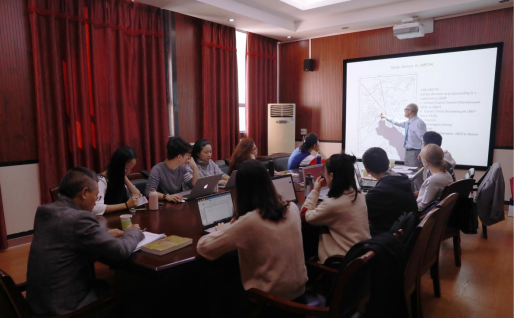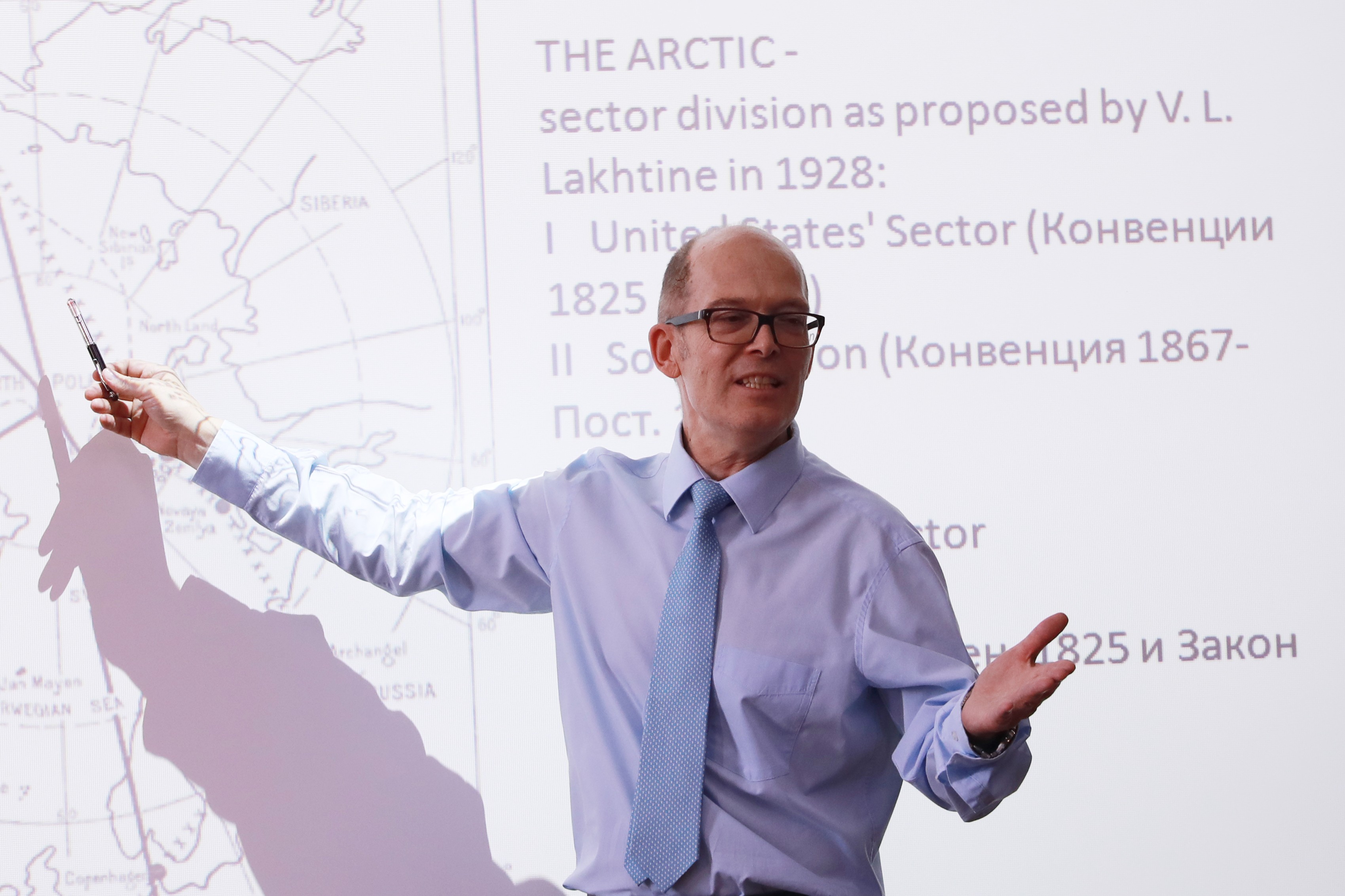On 30th October 2018, Alexander Vylegzhanin, academician of Russian Academy of Natural Sciences, the Head of the Department of International Law, Moscow State Institute of International Relations (MGIMO University), held a lecture on Legal Status of the Arctic Ocean at CIBOS. Professor Alexander Vylegzhanin is a member of the Scientific Expert Committee, Russian Federal Maritime Commission, and is on the list of arbitrators according to Annex VII of the UNCLOS. He has rich theoretical and practical experiences in polar marine research.

At first, Professor Vylegzhanin introduced that the partition method used for Arctic sectors originated from the Arctic Law published by В. Л. Rahkin in 1928, and made a brief introduction about a basic concept of “straits used for international navigation” based on Corfu Channel case. Both the “geographical criterion” and “functional criterion” were important to determine whether a strait constituted a strait used for international navigation according to customary international law. Vessels enjoy rights of “freedom of navigation”, “transit passage”, “archipelagic sea lane passage” and “innocent passage” in straits used for international navigation according to UNCLOS 1982. As for Bering Strait, Professor Vylegzhanin held the opinion coastal countries, the United States and Russia, have the right to decide which passage right could be applied in Bering Strait, either “transit passage” or “innocent passage”. Legal status of the Arctic Oceans depends on broad international law foundation, including general principles, related agreements, treaties and conventions.

( Professor Vylegzhanin )
In addition, Professor Vylegzhanin expressed his positive evaluation on Arctic Council’s role in Arctic governance. For example, it produced some binding agreements: the Agreement on Cooperation on Aeronautical and Maritime Search and Rescue in the Arctic, 2011; the Agreement on Cooperation on Marine Oil Pollution Preparedness and Response in the Arctic, 2013 and the Agreement on Enhancing International Arctic Scientific Cooperation, 2017. Besides, the Agreement to Prevent Unregulated High Seas Fisheries in the Central Arctic Ocean (CAOFA) signed on October 2018 can solve the fishing governance problem in high seas portion of Arctic Ocean, which is also an important improvement in the governance of fishing industry in high seas portion of Arctic Ocean.
In the end, teachers and students present conducted discussions about the conflicts between Russian domestic law and international conventions, roles China and Japan play in Arctic governance, cooperation between China and Russia in Arctic and construction of “Polar Silk Road”.
(Rewritten by Yu Minna)
(Edited by Fu Shanshan)
